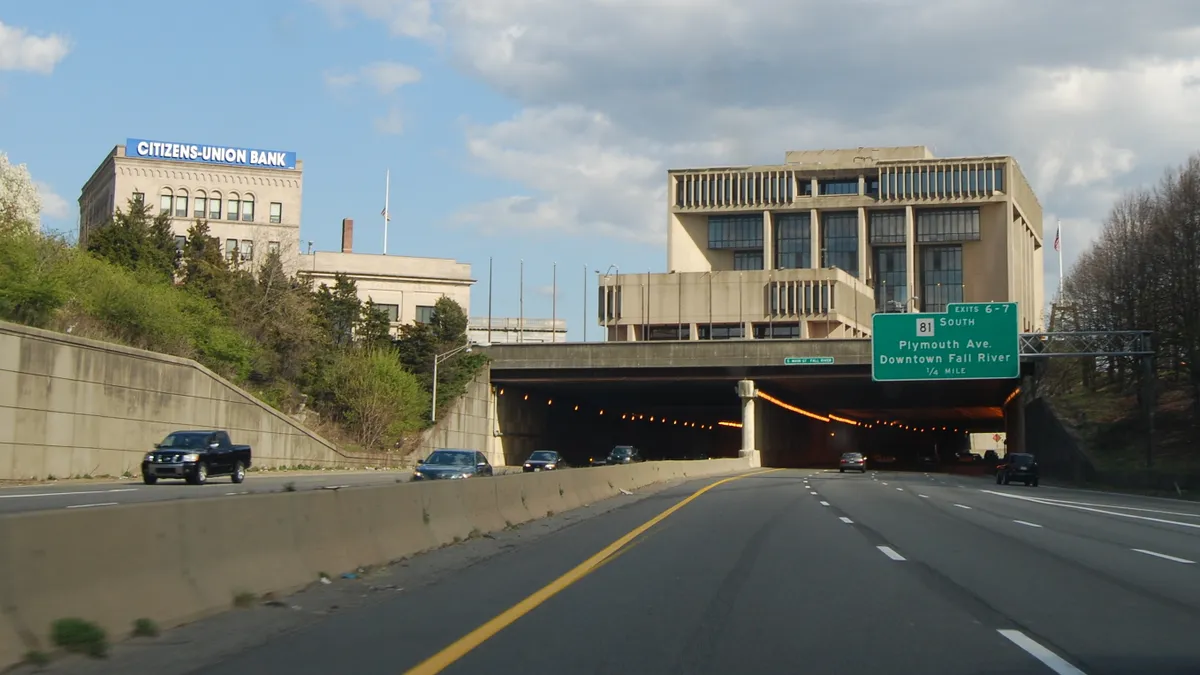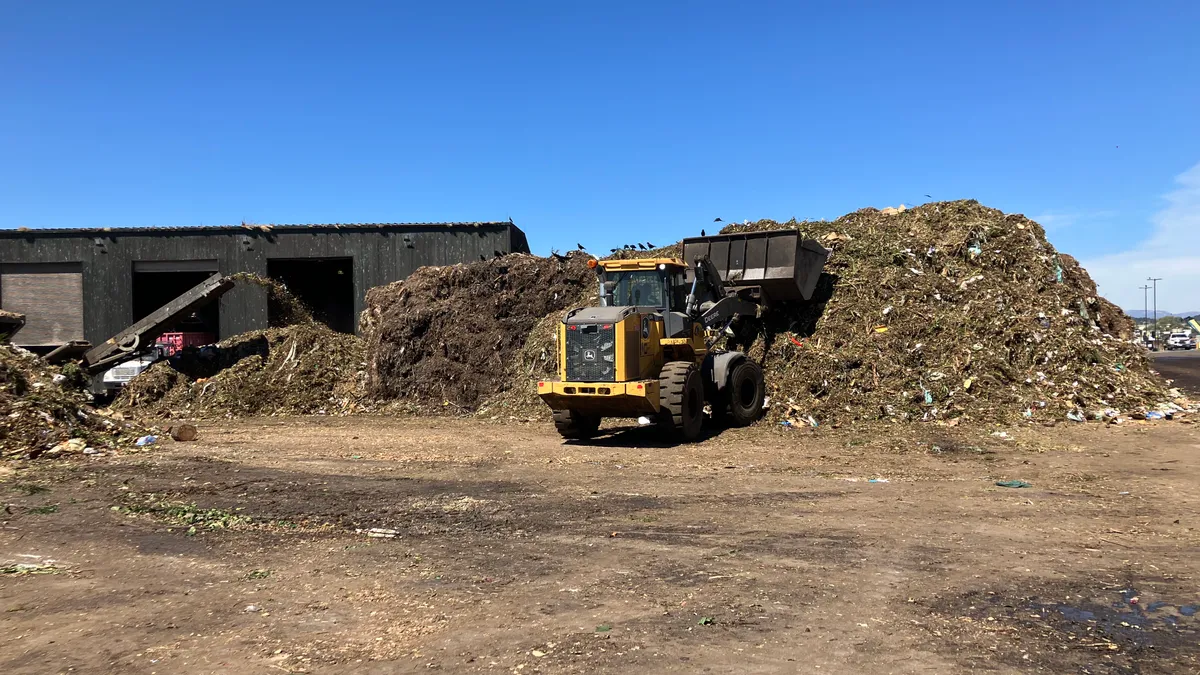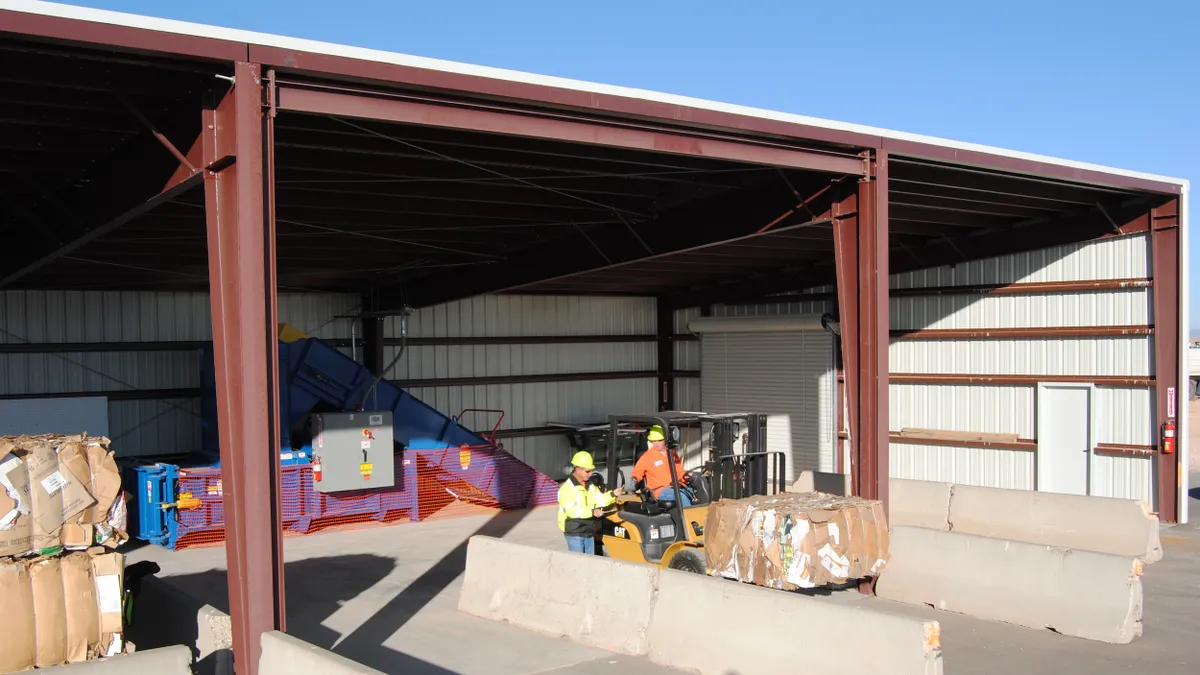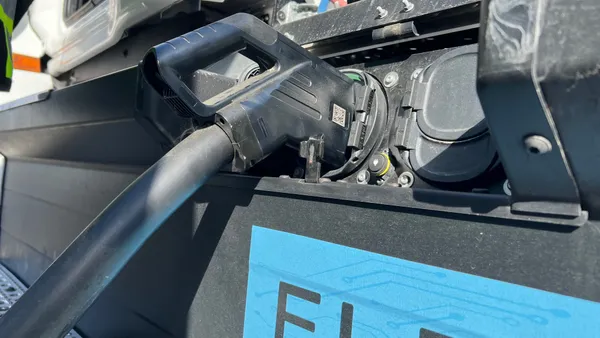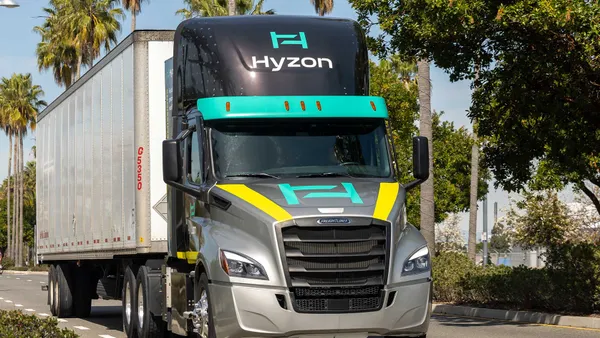UPDATE: June 22, 2018: Fall River's pay-as-you-throw program will remain in place, despite efforts by Mayor Jasiel Correia II to eliminate it through the budget process. The Fall River Herald News reports that the full $2.3 million related to PAYT revenue and expenses was returned to the proposed budget language. While that budget won't be formally approved until June 30, this particular issue is believed to be settled for the upcoming fiscal year.
Dive Brief:
- Jasiel Correia II, the mayor of Fall River, Massachusetts, is moving forward with a plan to get rid of the city's pay-as-you-throw (PAYT) program, as reported by the Fall River Herald News. This has raised questions about whether the move would lead to a financial shortfall due to nearly $2 million in lost revenue from bags, though also comes at a time when recycling is currently more expensive than disposal for the city.
- Since Fall River introduced PAYT in 2014, it has reduced the annual amount of municipal solid waste from approximately 30,500 tons to 17,000 tons. Disposal costs have dropped correspondingly, from $5.5 million to about $1.16 million.
- Enforcement has varied between mayoral administrations and political opinions are still mixed on the program. At a June 7 City Council committee meeting, members voted in favor of stopping debate around whether to approve the program's cancellation.
Dive Insight:
PAYT or “save-as-you-throw” systems have been increasingly adopted in the Northeast and elsewhere in the U.S. Earlier this year, New York's Department of Sanitation entered a contract with Michigan-based Resource Recycling Systems to study implementing the system itself.
Getting a PAYT system in place can be politically difficult. A 2004 guide from the Massachusetts Department of Environmental Protection recommends that these programs be revenue neutral to help overcome opposition. However, once they are put in place, they tend to stick around because of their cost-saving benefits.
Comments from the DEP and other sources indicate that it's very rare for a municipality to do what Fall River is now considering. However, there is a different context with what’s unfolding locally.
China has implemented new restrictions on imports of recyclables that are wreaking havoc in U.S. markets and elsewhere. Massachusetts has felt the effects more than most states on the East Coast, with a small amount of material going to disposal and prices rising for service in many municipalities.
In April at WasteExpo, some of the industry's top CEOs said they welcome this disruption because it may finally change perceptions that recycling should cost less than disposal. In some ways, that would seem to go against the traditional PAYT model and raises questions about whether other municipalities could begin reconsidering their own pricing structures based on short-term market conditions too.


